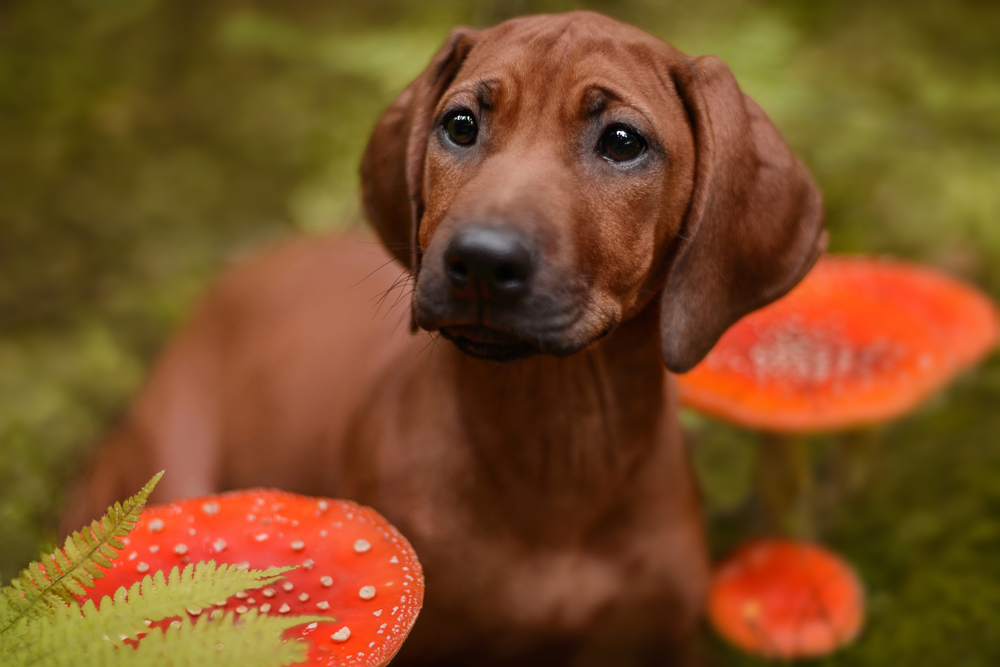Mushroom Poisoning in Dogs

Fall is a beautiful season for outdoor enthusiasts to hike, camp, fish, and hunt (and do all of this with their dogs, of course). Our colorful array of autumn foliage makes this a wonderful time to be outside exploring nature with our dogs.
Wild mushrooms are hidden toxins that grow throughout the year, but more so after a rainy period. The team at Oakland Veterinary Referral Services wants to bring awareness about mushroom poisoning in dogs and what you can do to protect your furry friend.
The Signs of Mushroom Poisoning in Dogs
When we speak of mushroom poisoning in dogs, you don’t need to worry about the button mushrooms you put on your pizza or salad. But outdoors, there are a wide range of fungi that are toxic to your dog. Dogs are naturally curious about eating everything, so they will probably come across a fungus under the leaves at some point.
It’s important to get your dog help right away if you see them ingest a wild mushroom. Take a photo or bring the mushroom with you to the veterinary hospital when you suspect it is poisonous. If your dog vomits, there may be pieces of the mushroom you can use to help identify what type it was and its level of toxicity.
Symptoms of mushroom poisoning in dogs can include:
- Vomiting
- Diarrhea
- Restlessness
- Drooling
- Abdominal pain
- Tremors
- Seizures
- Coma
Most toxic mushrooms compromise the central nervous system. Toxic mushrooms are grouped by the type of toxin they contain. For example, one form of toxicity will affect a dog right away while another (usually the more serious variety) may not bring about symptoms for 10-12 hours after ingestion.
Mushroom Poisoning in Dogs: Diagnosis and Treatment
Diagnosis is most easily done when there is a sample of what your dog ate for your veterinarian to examine. If you could not retrieve the mushroom, your doctor will look for evidence in the vomit and stool, as well as assessing what symptoms have emerged.
These are the most common treatment options for mushroom toxicity. Treatment generally involves inducing vomiting through the use of activated charcoal. This is to rid your pet of any of the remaining toxins. Along with this, supportive care like intravenous fluids and medications are often necessary to support the organs and help with a successful recovery.
Mushroom Poisoning in Dogs: Prevention
We encourage you to get outdoors with your bestie, but be on the lookout for fungi and other things your dog might ingest. If they are prone to eating things they shouldn’t, they should always be walked on a leash. Don’t let them rifle through leaves and brush, as these areas harbor poisonous mushrooms.
Call us if you have any questions or concerns about mushroom poisoning in dogs. We are happy to help you better protect your sweet pet.


